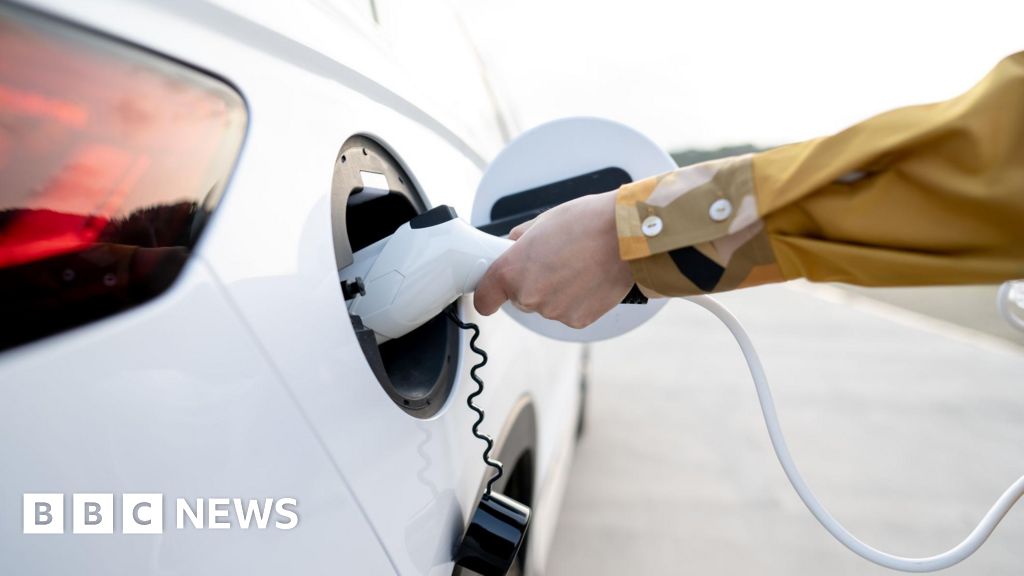Sales of electric cars are failing to keep up with the wider market, figures show, as the industry renewed calls for the government to provide incentives for private buyers.
Some 15.2% of new cars registered in March were battery electric vehicles, the Society of Motor Manufacturers and Traders (SMMT) said, down from 16.2% a year earlier.
While registrations of electric cars to company fleet buyers increased, sales to individuals fell.
Sales of all types of cars – including petrol, diesel and hybrids – rose in March, which is typically the busiest month of the year as new number plates are introduced.
The number sold increased by 10.4% to 317,786, the SMMT said. That was the best March performance for five years, although sales remain well below pre-pandemic levels.
Sales to fleet buyers – which include businesses such as car rental and taxi companies – jumped by 29.6%.
However, sales to private buyers fell 7.7%, which the SMMT said reflected a tough economic backdrop of “low growth, weak consumer confidence and high interest rates”.
The industry body also said the decline in market share for electric vehicles “underscores the need for government to support consumers”.
“A sluggish private market and shrinking EV market share… show the challenge ahead,” said Mike Hawes, the SMMT’s chief executive.
“Manufacturers are providing compelling offers, but they can’t single-handedly fund the transition indefinitely.”
The SMMT is calling for measures such as halving VAT on electric vehicles and cutting VAT rates at public charging points.
Robert Forrester, the chief executive of car dealership group Vertu Motors, told the BBC’s Today programme that while there are incentives for companies to buy electric vehicles for their employees as company cars, there are “no incentives at all in the retail market”.
He added that the high cost of electric cars was a deterrent for private buyers, and “clearly you’ve got all the issues we’ve discussed many times about range anxiety and things like that”.
Car manufacturers could face fines if they fail to increase the proportion of zero-emission vehicles sold over the years ahead.
Under the Zero Emission Vehicle (ZEV) mandate, at least 22% of vehicles sold this year must be zero-emission, with the target expected to hit 80% by 2030 and 100% by 2035.
Manufacturers that fail to hit the quotas could be fined £15,000 per car.
Credit: Source link











